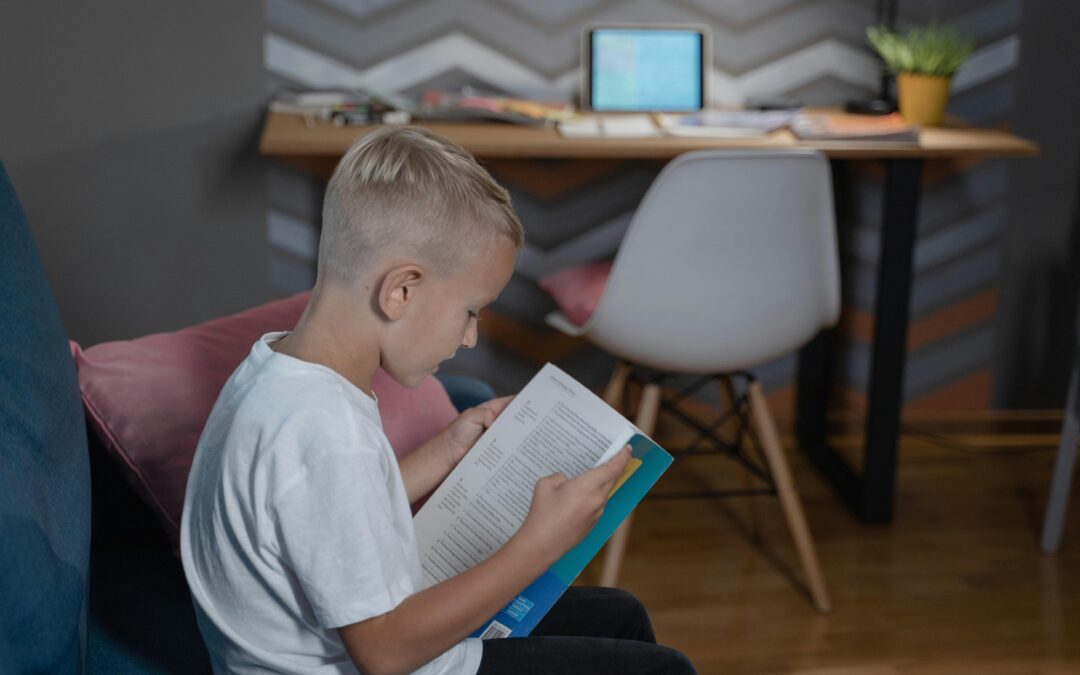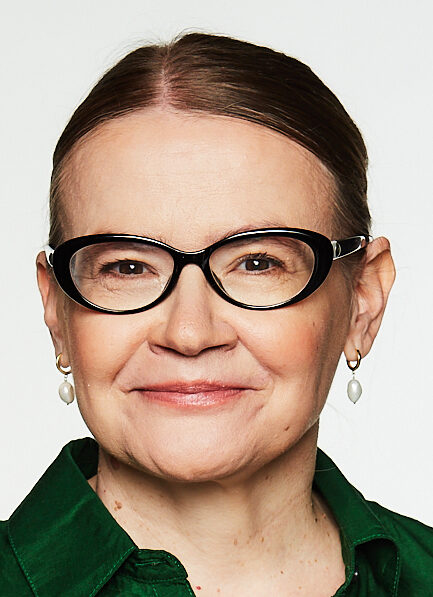Keep our news free from ads and paywalls by making a donation to support our work!

Notes from Poland is run by a small editorial team and is published by an independent, non-profit foundation that is funded through donations from our readers. We cannot do what we do without your support.
By Anna Gmiterek-Zabłocka
Soon after Poland’s ruling coalition came to power in December 2023, the education ministry embarked on a number of school reforms. Those include controversial regulations that came into effect in April 2024, under which primary school teachers are no longer supposed to give homework.
A poll carried out in February 2024 for news website Wirtualna Polska found that 51% of Poles thought that the incoming no-homework policy was a bad idea, while 44% supported it.
Meanwhile, a survey conducted in March 2024 by the SOS for Education civil society network showed that 82% of teachers thought that homework was needed. Some 85% felt that teachers should be allowed to decide how much and which work they gave to students.
Recent reports have suggested that the education ministry might reverse the no-homework policy. When asked in August about this, education minister Barbara Nowacka said that she is “not ruling anything out” and would first wait for the results of evaluation surveys sent to schools.
Ahead of the new school year, Anna Gmiterek-Zabłocka, a journalist specialising in social issues, examines how the changes have been received by teachers, parents and experts.
No homework means more free time
The education ministry differentiates between the youngest classes – years 1 to 3 – where homework is now banned, and years 4 to 8, where it can be given, but only as an optional extra. Teachers may not mark such work or give a fail when it is not done.
The main argument for abolishing homework and grades was that it means schoolchildren have less stress and more time for developing their interests or going out to play after lessons.
“Many times, [parents] warned that Polish schools need to work for the good of children and take care of their wellbeing, their time for development and time for good, deep education,” said Nowacka when introducing the reforms. The place for education and learning is school, not home, she added.
Compulsory, graded homework will be abolished in Poland’s primary schools from April, the education minister has announced.
She also reiterated pledges to slim down the curriculum, reduce the number of Catholic catechism classes and increase teachers' pay https://t.co/iYs2grsSvl
— Notes from Poland 🇵🇱 (@notesfrompoland) January 19, 2024
Previously, some teachers would give children a large amount of work to complete at home – for Polish, maths, chemistry and biology classes, but also such subjects as art and music.
Students were required to practise playing the recorder, for example, which they would spend hours doing at home, despite not attending music school. Some were so busy studying and doing homework that they had no time for the extracurricular activities that were their real passions and interests.
Such activities are important for their physical and mental health, the latter of which has become a significant problem in post-pandemic society. In Poland, numerous reports show that increasing numbers of children have depression, anxiety, and suicidal thoughts.
The reforms continue to divide opinions
Joanna Dobkowska teaches at the Faculty of Education at the University of Warsaw. She says that the education ministry rather blithely scrapped homework overnight. Neither teachers nor parents were prepared for the change, she argues. Moreover, the ministerial decree specified what a teacher could and could not do, leading some to feel that it curbed their autonomy.
“Besides, the ministry didn’t take into account the results of international studies, including PIRLS and TIMSS,” Dobkowska told Notes from Poland. The former monitors trends in student achievement in literacy, while the latter tracks achievement in maths and science.
“That research shows that between 2016 and 2021, the amount of homework given by Polish teachers decreased significantly,” she continues. “The solution should be to train teachers, so they know what kind of homework to give, how often, and why simply completing tasks in exercise books isn’t effective.”
Polish children spend more time on homework than the average in other countries, a report has found as the government prepares to abolish homework in primary schools
But it also found most parents are happy with the amount of homework their child receives https://t.co/QdWFFCbAiN
— Notes from Poland 🇵🇱 (@notesfrompoland) March 19, 2024
Dobkowska says that it is not homework itself that is the “demon” that must be fought, but how it is handled and what it looks like. “It’s important for homework to be…a type of intellectual challenge, a puzzle. So that it triggers creativity in the child. Not to be an exercise the child has to sit down with a parent to do.”
She adds that a student should always receive feedback after doing homework so that they can see the value of their effort. “Of course, that means that these tasks should be set less often, so that the teacher has enough time to check them,” she says.
Iga Kazimierczyk is an educational theorist at Korczak University and head of the Space for Education foundation. She says that the ministry’s decision to scrap homework was a very bad idea.
“It wasn’t preceded by any analyses,” she explains. “Even if changes come in without previous analyses, it’s vital to immediately set about monitoring the effects of the change. And that hasn’t happened yet either.”
In Kazimierczyk’s view, homework consolidates knowledge and skills and teaches children regularity and a sense of duty. In some subjects – such as maths – it gives them the opportunity to check how they are coping with a particular topic.
Poland has ranked first among EU countries – alongside Finland – in an international test of reading comprehension among school pupils.
It also has one of the largest gender disparities, with girls performing much more strongly than boys https://t.co/JHUh94BA0t
— Notes from Poland 🇵🇱 (@notesfrompoland) May 16, 2023
Kazimierczyk, whose son attends fourth grade in a Warsaw primary school, says she sees for herself that the lack of homework is not good for children. “When I ask my son what he did in maths, he replies, for example, ‘fractions’. Except that’s a very general term, and he’s unable to explain to me what exactly they were doing.”
She explains that, because the exercise books and textbooks now stay at school, it is difficult for parents to help their children with any academic issues at home. In Kazimierczyk’s opinion, homework should be restored – in a reasonable format and to a reasonable extent.
Andrzej Wyrozembski, the headteacher of High School No. 1 in Warsaw, agrees. Although high school students still get homework, Wyrozembski is concerned about the new intake beginning after the summer holidays.
“We are getting signals from teachers who work in primary schools that these children won’t be prepared for doing homework, for working systematically,” he told Notes from Poland.
He argues that a systematic approach that emphasises continuity is “extremely important”, citing the example of maths. “If someone doesn’t understand one branch of mathematics and is unable to do exercises in that area, they won’t be able to go any further.”
“I have no doubt that ditching homework in primary schools was a bad idea,” Wyrozembski adds.
Mariusz Lisek, who has been headteacher of Primary School No. 7 in Lublin for many years, agrees that homework should return, but in a reduced form.
“Of course, before the reform, parents would sometimes come and complain that their children were ‘overwhelmed’ with the amount of homework. Sometimes I talked to teachers about that and asked them not to overdo it, for example in music.”
But he too adds that homework is important to teach children to work systematically, revise materials and check their knowledge.
For some teachers and parents, no homework is no bad thing
Danuta Nowakowska-Bartłomiejczyk is the headteacher of Primary School No. 6 in Lublin. Though not firmly opposed to homework, in the year since its absence she has noticed that children have come alive, finding time for play, entertainment and rest.
“Of course, I hear some teachers say that with maths, Polish, biology or geography it is important to be systematic and teachers are very sorry there’s no homework,” she told Notes from Poland.
“I also hear that the knowledge level in those subjects has declined because students aren’t learning at home.” But she says that until studies are conducted, it is not possible to confirm whether this is really the case.
Nowakowska-Bartłomiejczyk is in favour of after-school group project work, which she says children enjoy working on. “It’s very engrossing, because you need to, for example, do measurements, analyse data, regularly record and describe everything,” she explains.
She also points out that at meetings with teachers, parents often urge them to give their children homework despite the official ban. “We give optional assignments, but children usually don’t do them.”
Poland's government recently "slimmed down" the school curriculum, cutting 20% of content.
We asked five education experts for their assessment of the cuts and how they will affect education https://t.co/3F4lpZ0Ypt
— Notes from Poland 🇵🇱 (@notesfrompoland) July 19, 2024
In some schools, however, homework is sometimes still given “in secret”, almost in an echo of the underground education of Poland’s past.
“My son is in year 3 of primary school. And he gets one or two tasks to do every day,” says Grzegorz, a parent who does not want the school to be named so the teacher does not get into trouble.
“As parents, we pleaded with the teacher to give homework because we were very keen for the children to practise reading instructions or solving maths exercises,” he continues. “And yes, we know it shouldn’t be like that, but it is.”
Adam Kalbarczyk is a Polish teacher who also spent 27 years as headteacher of the International Paderewski School in Lublin. He has no doubt that there should be no homework in a well-functioning school.
“In the schools I was in charge of, there was no homework and still is none,” Kalbarczyk says. “I always told parents that the children spend many hours at school – often as many as their parents spend at work. And after school, they have the right to rest or to develop their passions and interests.”
He explains that, in his experience, it is not necessarily the case that a lack of homework causes students’ attainment to drop.
Poland has continued its rise towards the top of the PISA education rankings, where it is now third in Europe for maths and science and fourth in reading comprehension https://t.co/Qt9l9wfCdo
— Notes from Poland 🇵🇱 (@notesfrompoland) December 3, 2019
“There are studies from other countries that confirm that homework is ineffective, particularly in younger classes,” Kalbarczyk continues. He cites John Hattie’s Visible Learning, in which the author conducted a meta-analysis of global studies on homework and found that it has a minimal impact on young people’s development.
“If it does have an impact, it’s…in secondary school, where young people begin to be interested in broadening their knowledge,” he suggests.
As yet, there are no precise analyses of how the new rules are shaping up. The next PIRLS and TIMMS studies, which will provide the opportunity to observe any differences in attainment since the changes were introduced, will be conducted in 2026 and 2027, respectively.
Meanwhile, the education ministry recently sent evaluation surveys to schools with detailed questions on teachers’ verdicts on the lack of homework, the results of which are due in September.
Translated by Ben Koschalka

Notes from Poland is run by a small editorial team and published by an independent, non-profit foundation that is funded through donations from our readers. We cannot do what we do without your support.
Main image credit: Tima Miroshnichenko/Pexels




















